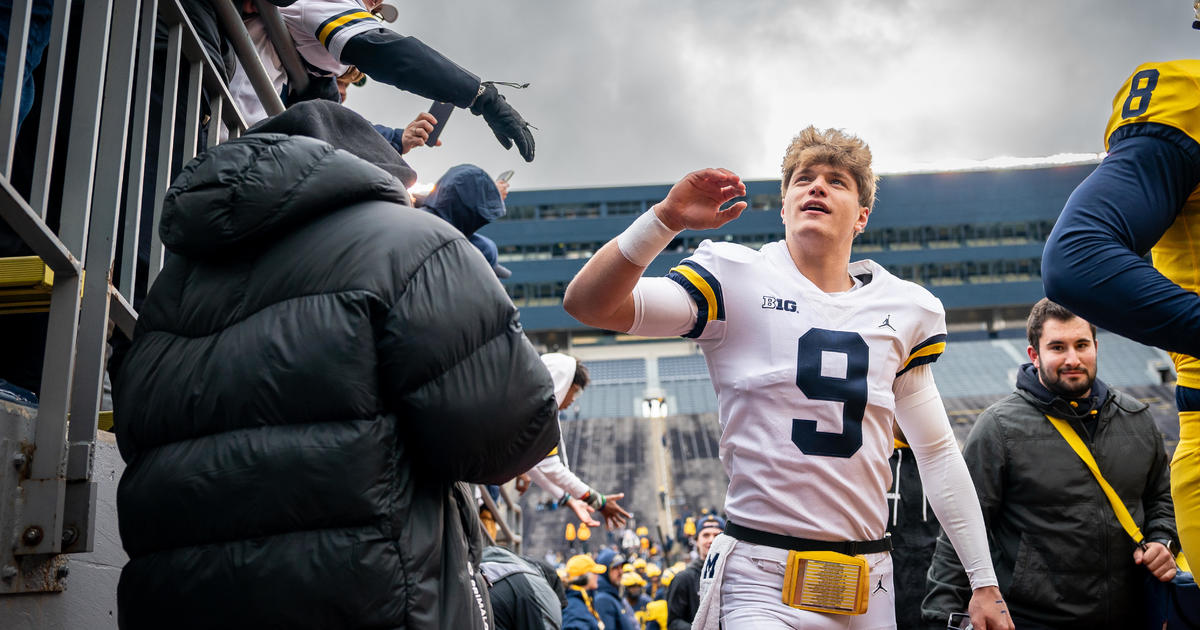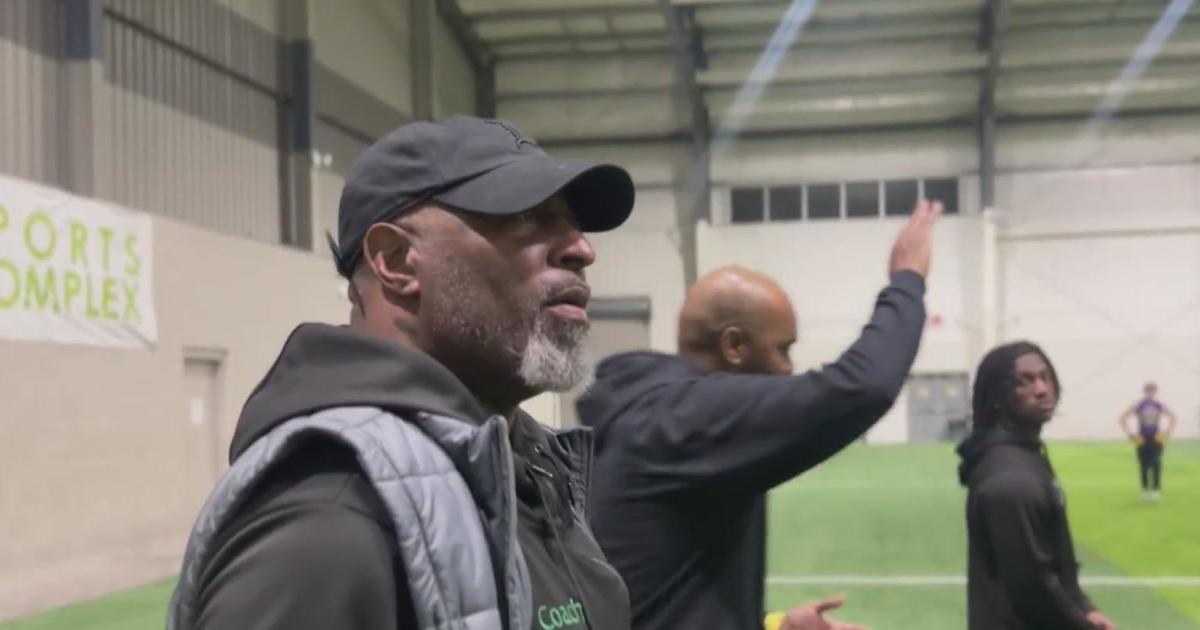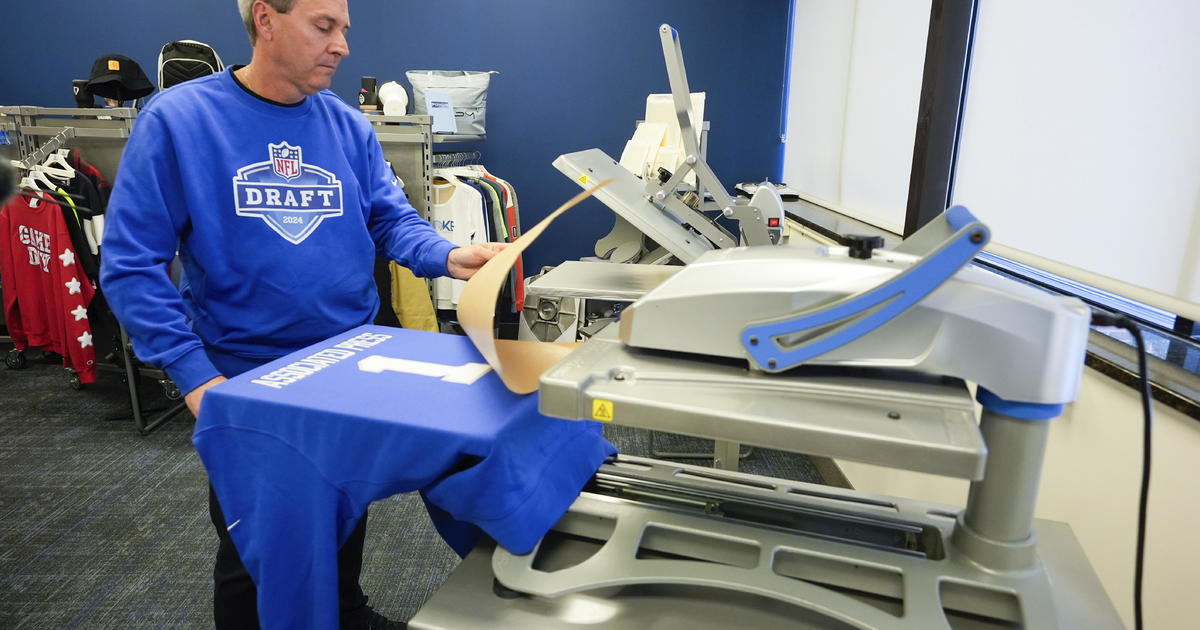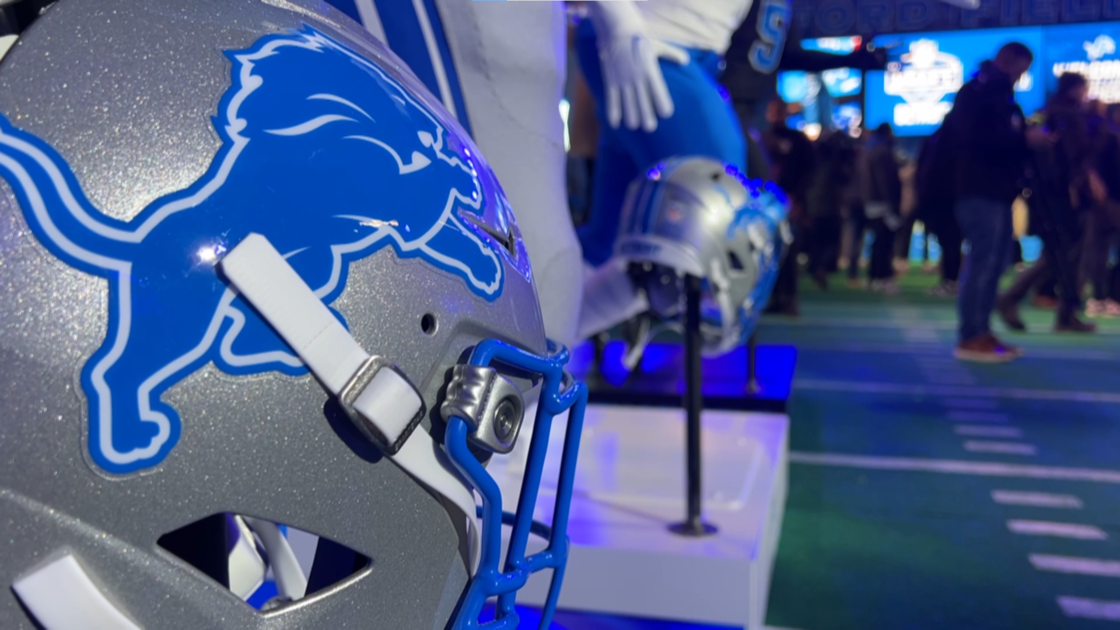Looking Ahead: What Effect Could College Player Unions Eventually Have On UM, MSU?
By Ashley Dunkak
@AshleyDunkak
DETROIT (CBS DETROIT) - Football players at Northwestern University of the Big Ten Conference took the first step toward unionization Tuesday, filing paperwork with the National Labor Relations Board.
So what does that mean for Michigan and Michigan State? The jury's out -- literally.
Michigan, like 23 other states, is a right-to-work state, meaning unions are allowed but their powers are limited.
"Such a law only prohibits a contract between an employer and a union that requires employees to pay dues to their union as a condition of employment," explained Michigan State law professors Robert and Amy McCormick, who wrote an 89-page research paper in 2006 that defines college athletes as employees.
"Thus, right-to-work laws make it harder for unions to survive because unions have to collect dues directly from their members who may not wish to pay," the McCormicks continued. "The union and the employer cannot agree between themselves to force those employees to pay union dues in order to keep their jobs. Nonetheless, the right-to-work legislation does not limit who has the right to organize and bargain collectively."
Even so, future recruits wanting to be a part of a college players union might prefer to attend a university in a state where unions can be stronger and thus negotiate more rights for their members.
Traditional football powerhouses Alabama, Texas, Michigan and Nebraska are all located in right-to-work states.
Could the recruiting power of schools in those states and others be diminished by the fact that forming unions there would be less beneficial to college players than if they joined a union in another state, with another school?
Put simply, it is too soon to tell.
Certainly, while Northwestern players have started the ball rolling as far as forming a union, the process will not be complete - if it even reaches completion - for quite some time. However, there has been stirring about players deserving more of college football's riches for years, and this seems to be a continuation of the slowly turning tide.
Of course, all this talk hinges on the idea that athletes are indeed employees. It could take the NLRB a while to render on a decision. In a confidently worded statement, the NCAA argues that the college football players are not employees and have no right to organize into a union.
In contrast, the McCormicks assert that college football players can pass both the common law test and the statutory test to qualify as employees under the National Labor Relations Act.
The common law test determines whether an individual qualifies as an employee based on the legal precedents set by courts over the years. The statutory test determines whether an employee fits the NLRB's list of criteria.
"Under the common law definition, an employee is someone who provides services for another in return for compensation and subject to the control or right of control of the employer," the McCormicks wrote in an email. "In this case, athletes in revenue-generating sports plainly provide services (playing a sport) in return for compensation (tuition, room, board, books and fees) and are subject to the pervasive control of their coaches and athletic departments."
While a football player might not clock in at 8 a.m. and clock out at 5 p.m., he spends a great deal of time on the practice field, in the weight room, in film sessions, in team meetings, on trips to games and on many of those same activities that occur throughout the year outside of the actual season. Players have to schedule their classes around their football commitments and thus are often limited in what classes they take and even what degrees they pursue.
ESPN analyst Jay Bilas, an open critic of the NCAA, also said players fit the description of traditional employees.
"Everything they do is like an employee," Bilas said. "They go on these business trips, they have to show up for work, they have work uniforms, so I think you could make the claim that they are unpaid employees."
Sports Illustrated legal analyst Michael McCann expects players from more schools to pursue unionization.
"I think we'll see other schools do this," he told SI.com Tuesday. "They're smart, the folks that are doing this. I'm speculating, but I think there will be a trickle effect. I suspect every couple of weeks, we'll see a new school join. That'll revisit this topic over and over again, and it'll give the impression that there is growing support for it."
Provided they are determined to be employees, Northwestern players can use the NLRA as justification for forming a union because they are filing as employees of a private organization, given Northwestern is a private university.
Public universities, such as Michigan and Michigan State, are governed by state laws, and players could file similar paperwork if they wanted to unionize under the Public Employee Relations Act, which was enacted by the Michigan state legislature.
According to Robert McCormick, who has worked as an NLRB attorney and thus is familiar with the board's procedures, the case of the Northwestern players will be assigned to an attorney or field examiner in the NLRB's Chicago office. A hearing will take place to determine whether the college players are employees. If that happens, there will be an election to see whether a majority of the players want union representation.
At that point, McCormick explained, the university could refuse to bargain with the union, and in turn the union could file an unfair labor practice. At an ensuing trial, when testimony and evidence would be offered, the classification of the athletes as employees could be challenged. Once a decision is made in that forum, either side could appeal, with the back-and-forth potentially continuing as far as the Supreme Court.



